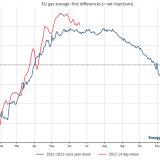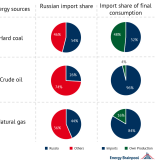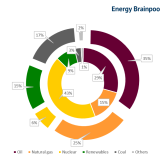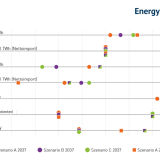Energy markets remain in turmoil in July 2022 due to the ongoing Russia-Ukraine war, with prices in the short-term and futures markets fluctuating as a result of new developments. Energy company Gazprom cuts supplies by half. To reduce Germany’s dependence on Russian gas, there are plans to bring back hard coal and oil-fired power plants that are waiting in the grid reserve. The Bundestag initiated a new amendment to the Renewable Energy Sources Act, where the expansion targets for renewable energies were raised.
Continue reading







